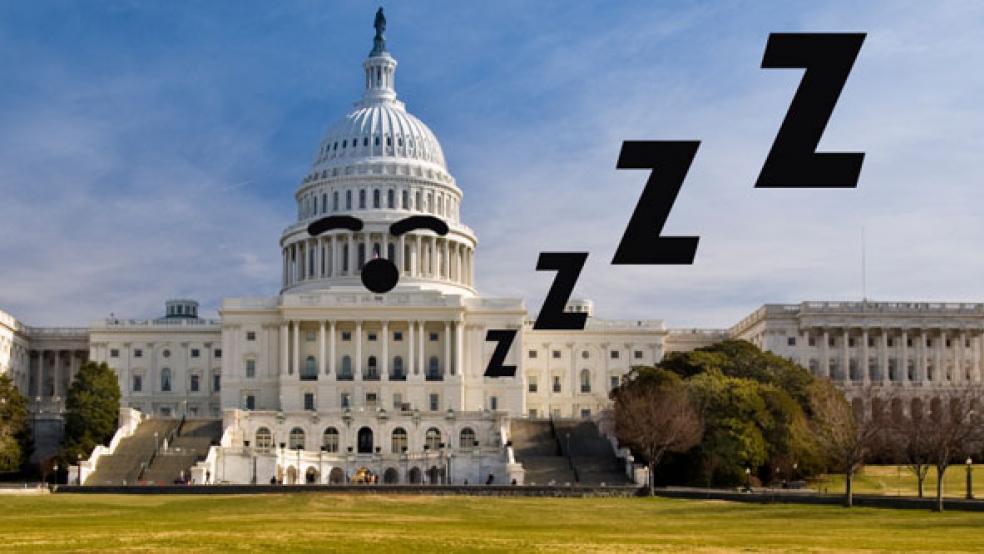After a remarkably slow start this year, the 113th Congress returns to work today from a July 4th holiday with many challenges and a very long way to go in tackling some of the nation’s most pressing national issues.

New farm and food stamp legislation appears out of reach for another year after the House recently rejected a Senate bipartisan bill. House Republicans will meet behind closed doors on Wednesday to decide what, if anything, to do about immigration reform, although conservative members overwhelmingly oppose a Senate-passed comprehensive measure that would put 11 million illegal immigrants on a path to legal status or citizenship.
The Senate and House are stalemated in drafting a new budget and spending measures for the fiscal year that begins Oct. 1, and the prospects for major tax and entitlement reform seem dim for the rest of the year. Unless the White House and congressional leaders can agree on raising the debt ceiling again, the Treasury could begin defaulting on its debt early this fall.
RELATED: RIVLIN: BLEAK LONG-TERM DEFICIT PROBLEMS PERSIST
In addition, the House and the Senate have been largely silent on foreign policy matters. In recent months, the House has continued to focus on the White House’s response to the Benghazi attack. Meanwhile, the Senate has yet to formally address issues from Syria to Egypt.
The congressional record for the first six months, to be sure, hasn’t been a blank slate. Congress ushered in the New Year with a major agreement to avert a fiscal cliff of tax increases and deep spending cuts. It followed by approving $61 billion in Hurricane Sandy relief. And it passed an important reauthorization of the Violence Against Women Act in March.
But overall, productivity has fallen sharply--this Congress appears on track to do less substantive work than the 112th Congress, another notorious “do nothing” body. So far this year, the 113th Congress has passed a mere 15 bills that were signed into law, compared to 23 bills enacted by the same time two years ago, according to a Library of Congress tracking system.
“Things don’t look too much different from the last Congress, which is to say the big issues of the day still seem to be on Congress’s plate,” said Sarah Binder, a George Washington University political scientist who tracks congressional performance. “There doesn’t seem to be all that much action towards trying to resolve them.”
Binder told The Fiscal Times today that Congress will have little choice but to resolve some of these issues as deadlines approach because of the grave consequences of inaction. Those include, for example, extending the Treasury’s borrowing authority and approving fiscal 2014 spending bills to avert a government shutdown or a first-ever default on U.S. borrowing. “Those are places even this Congress wouldn’t want to go,” she said. “There are other issues which [have varying] consequences of inaction across members and across the parties: immigration reform, tax reform, global warming, and energy, or the student loan issue.
“Immigration reform might surprise me,” Binder added, “but it’s a long haul there to find out if there is overlap between what the House may want and what the Senate wants.”
Lawmakers did approve several other bills that will largely go unnoticed by most Americans. For example, in May, Congress passed a measure specifying the size of precious-metal blanks that will be used to make commemorative coins for the National Baseball Hall of Fame.
They also passed a bill exempting congressional staffers and other government employees from disclosing financial records online. And in February, Congress passed a bill that threatened to withhold lawmakers’ pay if they failed to pass a short-term spending bill to keep the government funded through the rest of the fiscal year, forcing them to cobble together a compromise and keep the government’s lights on.
Here are other bills passed so far this year:
Consolidated and Further Continuing Appropriations Act: Keeps the government funded through Sept. 30.
Pandemic and All-Hazards Preparedness Reauthorization Act: Revises the National Health Security Strategy's preparedness goals.
Reducing Flight Delays Act: Provides the Federal Aviation Association with flexibility to maneuver around sequester budget cuts and avoid furloughing air traffic controllers that caused massive fight delays and national media attention.
Congressional Staff and Executive Branch Employees Exempt from STOCK Act : These employees no longer have to disclose their finances online. The law still applies to members of Congress, congressional candidates, the president, vice president, and presidential appointees.
District of Columbia Chief Financial Officer Vacancy Act: Requires the D.C. treasurer to serve as acting Chief Financial Officer (CFO) in the event there is a vacancy in the Office of Chief Financial Officer because the CFO has died, resigned, or is otherwise unable to perform the functions and duties of the office.
Congressional Gold Medal to Sixteenth Street Baptist Church Bombing Victims: This award posthumously gave congressional gold medals to Addie Mae Collins, Denise McNair, Carole Robertson, and Cynthia Wesley, who were killed in the 1963 bombing of the Sixteenth Street Baptist Church during the Civil Rights Movement.
Stolen Valor Act : Requires anyone who falsely obtains a medal or decoration with the intent to obtain money or benefits to pay a fine or face up to one year in prison.
Freedom to Fish Act : Prohibits the Corps of Engineers from restricting public access to waters downstream of a dam.
Animal Drug and Animal Generic Drug User Fee Reauthorization: Extends for FY2014-FY2018 the authority of the FDA to collect animal drug user fees. This applies to new animal drug application or supplemental animal drug application fees and the like.
Flu Vaccines Subject to Vaccine Excise Tax: Amends the IRS code to include influenza vaccines as taxable under the vaccine excise tax.






